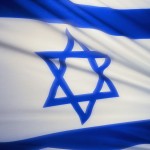Tuesday
Aug032010
UPDATED Israel-Lebanon: Border Clash Kills At Least 4 Soldiers, Journalist (Al Jazeera)
 Tuesday, August 3, 2010 at 14:06
Tuesday, August 3, 2010 at 14:06  UPDATE 1525 GMT: Israel Defense Forces have confirmed that Lieutenant Colonel Dov Harari was killed in today's skirmish. A platoon commander, Captain Ezra Lakia, has been seriously wounded.
UPDATE 1525 GMT: Israel Defense Forces have confirmed that Lieutenant Colonel Dov Harari was killed in today's skirmish. A platoon commander, Captain Ezra Lakia, has been seriously wounded.Al Jazeera reports:
At least three Lebanese soldiers have been killed by Israeli forces during an exchange of rocket and gunfire along the border between the two countries.
A journalist was also killed, and five more Lebanese soldiers wounded in the Israeli shelling on Tuesday.
"The Israelis fired four rockets that fell near a Lebanese army position in the village of Adaisseh and the Lebanese army fired back," a Lebanese security official in the area said.
MENA House: “Iranian” Rockets Used in Attacks on Israel and Jordan
Hezbollah's Al Manar television station said a high-ranking Israeli soldier was also killed in the border incident. The report could not be independently verified, and the Israeli army refused to comment.
Lebanese news sources reported that the journalist killed was Assaf Abou Rahhal, from the Lebanese newspaper Al-Akhbar.
Lebanese witnesses said that Israeli shells are continuing to hit Adaisseh village.
The clashes erupted after Israeli soldiers reportedly attempted to uproot trees on the Lebanese side of the border.
Read rest of article....
tagged  Al Jazeera,
Al Jazeera,  Al-Manar,
Al-Manar,  Assaf Abou Rahhal,
Assaf Abou Rahhal,  Dov Harari,
Dov Harari,  Ezra Lakia,
Ezra Lakia,  Israel,
Israel,  Lebanon in
Lebanon in  Middle East & Iran
Middle East & Iran
 Al Jazeera,
Al Jazeera,  Al-Manar,
Al-Manar,  Assaf Abou Rahhal,
Assaf Abou Rahhal,  Dov Harari,
Dov Harari,  Ezra Lakia,
Ezra Lakia,  Israel,
Israel,  Lebanon in
Lebanon in  Middle East & Iran
Middle East & Iran 





